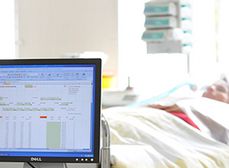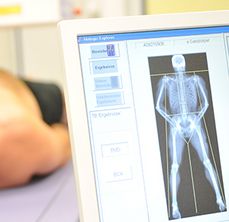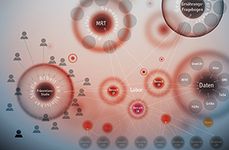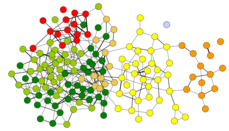Research infrastructure
For successful translational biomedical research, state-of-the-art technological platforms are a basic prerequisite. For this reason, the DZD is specifically strengthening the expansion of research infrastructures for key technologies at the DZD locations and setting up central service facilities.
This includes preclinical models, geno- and phenotyping, epidemiological cohorts, high-throughput screening platforms and a GMP laboratory for tissues and cells for transplantation. In addition, central service facilities of the DZD – such as clinical study management, biosample and data management, DZDconnect, or the Core Unit Computational Biomedicine – provide an ideal basis for the high-quality and cost-effective investigation of scientific research topics.
Preclinical Model Systems

To develop new therapeutic concepts, a deep understanding of the pathology of diabetes in humans and animal models is essential.
- German Diabetes Mouse Clinic: standardized mouse models with a research focus on metabolic disorders and diabetes
- Large animal model: pig model for the translation of research results to humans
- Human Islet Biobank: human pancreatic tissue for the investigation of novel therapeutic approaches in the area of the beta cell
- Zebrafish
Translational Research

In the DZD, the successful development of new therapies – the translation of research results – is supported by suitable infrastructures:
- Clinical studies: DZD Clinical Studies Platform – central studies and data management of clinical studies of the DZD
- Cohorts: large population-based studies (cohort studies) provide insights into the influence of genes, the environment and lifestyle. KORA and EPIC cohorts – epidemiological cohort studies – serve as the basis for data and samples for diabetes. The DZD Prediabetes Cohort encompasses 8,106 patients for the development of personalized prevention strategies for type 2 diabetes.
- High-throughput Screening Platform
- MedChem Expertise Center of the German Centers for Health Research (DZG)
Genotyping and Phenotyping

Modern technologies and imaging methods enable detailed mapping of the genome (total genetic information) or physiological parameters (phenotype)
- Omics technologies
- Genomics, proteomics, metabolomics
- Platform of imaging methods for the preclinical and clinical research areas
Biosamples

Biosamples such as blood, tissue, or urine are indispensable in biomedical diabetes research, for example to find new biomarkers for earlier and better diagnosis. In the clinical studies, the DZD collects human biomaterials for the DZD Biobank. The advantage is that these biosamples, in conjunction with the collected data of these excellently phenotyped donors, represent an extraordinary added value for future research projects.
Contact: Dr. Brigitte Fröhlich, DZD Head Office
DZD Core Data Set

For many years, the DZD has been conducting large multicenter clinical studies Germany-wide in the field of diabetes and metabolic research.
With the DZD Core Data Set, the DZD has defined a list of clinical parameters relevant for diabetes research, which are recorded uniformly in all DZD clinical studies. The Core Data Set consists of eight modules with more than 140 items as well as additional optional modules for investigations that are only relevant for special studies.
A detailed description of each parameter contributes to the standardization of data collection and ensures that all data are uniformly labeled, defined, and recorded in the same format across studies. This is a prerequisite for the comparability of data from one study to another.
The DZD Core Data Set is designed for research projects in the field of type 2 diabetes in adults. It also covers topics in the field of prediabetes and metabolic research.
Contact: Renate Schick, DZD Head Office

DZDconnect
Multicenter studies, cohorts, long-term epidemiological studies, preclinical models, genotyping, and phenotyping provide valuable health-related data. In order to better analyze this information across locations and to make the data available to researchers, the DZD has established the data management project DZDconnect. Using artificial intelligence, patterns shall be identified in order to facilitate the investigation of the relationships between complex data sets more quickly.
Contact: Angela Dedié, DZD Head Office
Computational Biomedicine Group

The Computational Biomedicine Group aims to strengthen bioinformatics and data analysis in the DZD. It provides all scientists in the DZD a central resource for expertise in bioinformatics. Collaborations are established on a project basis: The scientists turn to the core unit and discuss their scientific questions in order to jointly develop a bioinformatics analysis plan.
Contact: Dr. Michael Menden, Helmholtz Zentrum München
DZD Online Tools
miR-QTL-Scan
Identification of miRNAs as regulatory elements and responsible factors for Quantitative Trait Loci (QTL).
Collaborative Diabetes Cross
Graphical representation of Quantitative Trait Loci (QTL) for obesity, diabetes related traits and plasma metabolites. Export of genes to QTL regions for further analysis.
